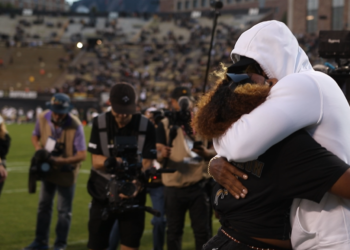As Name, Image and Likeness deals continue to pour money into college football, along with local collectives, the business of college football is in unchartered territory.
While there is a lot of goodwill towards the idea of players being compensated for their participation in a multi-billion dollar business. There are some conversations that aren’t be thrust into the spotlight. Deion Sanders addressed some of those concerns during a recent interview.
“Everybody wants to get paid, but they don’t want what comes with getting paid. Because now you want to be a professional. Can I treat you like that? Because professionals get cut. Professionals get walking papers. Professionals get chastised from the media. And this has been a sacred place for college athletes because the media don’t really touch college athletes because they’re kids. But now when that young man is getting compensated more than that writer, or that vlogger or that guy who was a podcast and that guy is already a little sensitive because that college kid is making more money, so now he attacks him. So now can the college kid handle it? Can he handle looking at all of that, He really can’t. Now we’re into a mental health situation. See, all this stuff lends to one another, man. And I’m praying for these kids. That’s why we have so much that insulates these kids, that really speak to these kids and help these kids really journey through this adversity and the wealth that they’ve accumulated,” Sanders said.
On his roster alone Deion Sanders has two of the top five athletes in the NCAA when it comes to NIL valuations. Shedeur Sanders and Travis Hunter are among the faces of college football and have been compensated as such according to reports. While their play and personality can maybe withstand the scrutiny of the spotlight, not everyone can. Sanders says there is a difference between getting paid and earning your money.
“You know what earned means? It means, I know what I’m getting on Saturday. That’s what earned means. I know exactly. I ain’t got to guess. I know what I’m getting on Saturday,” said Sanders.
As this new era of college football rolls on, time will be the ultimate judge of how today’s athlete handles the responsibility of being compensated and how the terms of that responsibility evolves.







